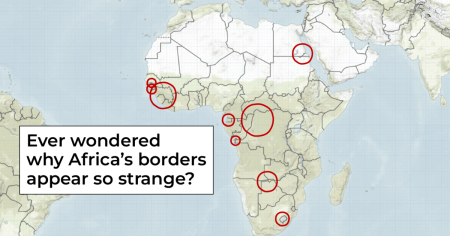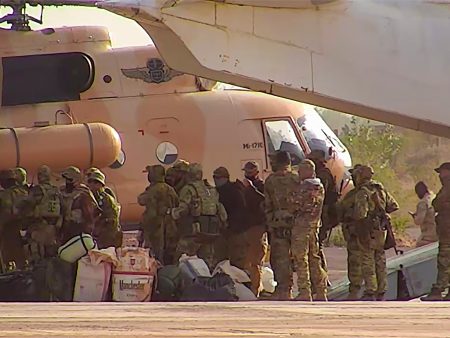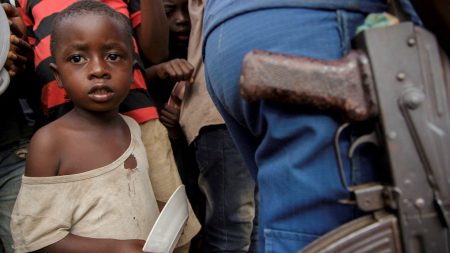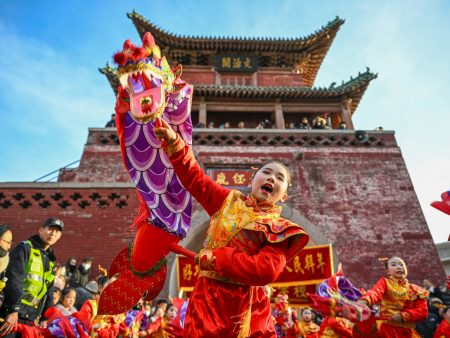Mozambique’s Post-Election Turmoil: A Nation Grappling with Contested Results and Violent Unrest
Mozambique is currently embroiled in a complex political crisis following the disputed presidential election held in October. The victory of Frelimo candidate Daniel Chapo, confirmed by the Constitutional Council despite widespread allegations of vote-rigging, has ignited a wave of violent protests and unrest across the nation. Opposition leader Venancio Mondlane has rejected the election results, alleging widespread fraud and manipulation, leading to street demonstrations, looting, and even a mass prison break in the capital city of Maputo. The escalating violence has resulted in a tragic loss of life, with estimates exceeding 260 fatalities since the election period began. The unrest highlights deep-seated political tensions and underscores the urgent need for a peaceful resolution to prevent further escalation and instability in the country.
Chapo, in his first public address since the court’s confirmation of his victory, appealed for calm and unity. While acknowledging the unrest and expressing regret over the violence, he pledged to be "the president of all" Mozambicans upon his inauguration in January. This message of inclusivity, however, faces significant challenges in the face of persistent opposition claims of electoral fraud and the deep mistrust that has permeated the political landscape. The opposition’s strong support base, particularly among the youth, adds another layer of complexity to the situation, raising concerns about the long-term stability and legitimacy of Chapo’s presidency.
The disputed election results and subsequent unrest have not only caused internal turmoil but have also spilled over into neighboring countries. Thousands of Mozambican citizens, fearing for their safety amidst the violence, have fled across the border into Malawi, seeking refuge from the escalating tensions. This exodus adds a humanitarian dimension to the crisis, placing a strain on resources in the receiving country and highlighting the desperate circumstances faced by those displaced by the post-election violence. The international community is increasingly concerned about the unfolding situation, with neighboring countries and regional organizations offering their assistance in mediating a peaceful resolution to the crisis.
The long-ruling Frelimo party, in power since Mozambique’s independence from Portuguese colonial rule in 1975, faces its most serious challenge yet. The opposition’s significant gains in the election, even amid allegations of rigging, demonstrate a growing dissatisfaction with the status quo and a desire for change within the Mozambican population. The youth, in particular, have emerged as a vocal and active force in the protests, signaling a generational shift in political engagement and a yearning for greater representation and transparency in governance. The escalating unrest underscores the urgent need for political dialogue and reforms to address the underlying grievances that fuel the discontent.
International observers have also raised concerns about the integrity of the electoral process, echoing the opposition’s claims of irregularities. These reports further erode public trust in the election outcome and add to the pressure on the government to address the allegations of fraud. The escalating crisis poses a serious threat to Mozambique’s stability and its future trajectory. The international community, including regional organizations and neighboring countries, has a vital role to play in facilitating dialogue and promoting a peaceful resolution that respects the will of the people and ensures a democratic and inclusive future for Mozambique.
The future of Mozambique hangs in the balance as the country grapples with the fallout from the contested election and the subsequent violence. The immediate priority is to de-escalate the tensions and restore peace and order. This requires genuine efforts from all stakeholders, including the government, opposition parties, and civil society organizations, to engage in constructive dialogue and find common ground. The international community can play a crucial role in supporting these efforts and ensuring that a credible and inclusive process is in place to address the underlying causes of the unrest and pave the way for a peaceful and democratic future. The humanitarian crisis unfolding in the region, with thousands seeking refuge in neighboring countries, adds another layer of complexity to the situation, demanding urgent international attention and assistance. Ultimately, a lasting resolution to the crisis requires a commitment to democratic principles, respect for human rights, and a willingness to address the legitimate grievances of the Mozambican people.










